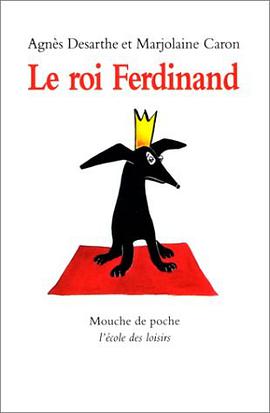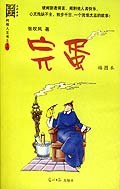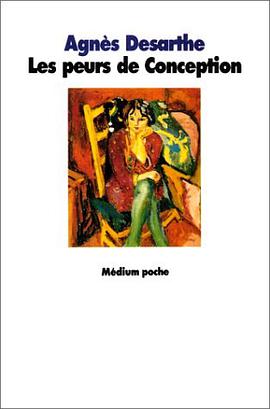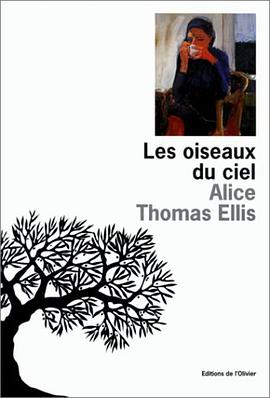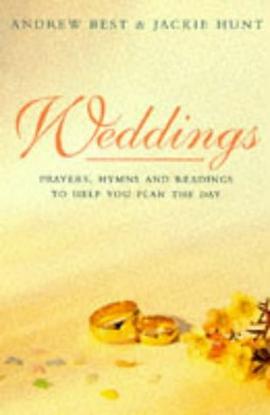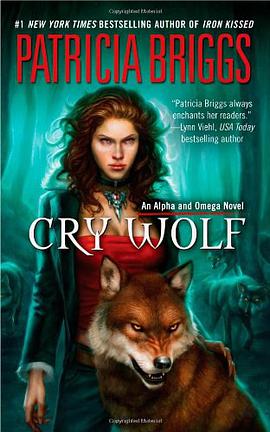

具体描述
Now Briggs begins an extraordinary new series set in Mercy Thompson’s world—but with rules of its own.
INTRODUCING THE ALPHA AND OMEGA NOVELS...
Anna never knew werewolves existed until the night she survived a violent attack…and became one herself. After three years at the bottom of the pack, she’d learned to keep her head down and never, ever trust dominant males. But Anna is that rarest kind of werewolf: an Omega. And one of the most powerful werewolves in the country will recognize her value as a pack member—and as his mate.
作者简介
Patricia Briggs lives in Montana with her husband, children, and six horses.
When did you begin writing?
I've been a storyteller all my life. When I was in high school, I used to amuse myself by driving through the woods at night and see how long it would be before I scared the pants off my friends—and if I could do it before I scared myself. On our first date, I convinced Mike (now my husband of twenty plus years) that I was a serial killer. Fun stuff. But it wasn't until my senior year in college that I did much more than just write scenes to go with my pencil sketches. (Don't get the wrong idea, all I can draw recognizably is horses and girls. If I were an artist I'd have starved to death a long time ago.) During my last year of college I wrote the same ten pages over and over again. Those ten pages became the first few pages of my first novel. I can still recite the opening paragraph from memory—only now I cringe when I do it because they are—surprise!—a classic example of "overwriting" in addition to being a more than a little pretentious. When we moved to Chicago (from Montana), writing became my refuge from the sheer number of people and I wrote the rest of Masques there.
Where and when do you write now?
We've lived in three different houses in the last twelve months, so my writing environment has gone through a lot of shifts. After six months of looking, we finally found a house with land (forty acres!) for my horses—but we had to compromise on the house. So we're a bedroom and an office shorter than we started out with. Happily office space is very cheap here (that's what happens when you live in a town that had 100,000 people in 1920 and now has about 40,000). So I'm renting an office in this awesome old building that has been taken over by the local Arts Foundation. So I go to work in the morning just like everyone else, but my work day usually ends when the kids get out of school. Needless to say, my productivity has gone way up since then.
Before you wrote urban fantasy, you wrote more traditional fantasies like Raven's Shadow. What are the differences between writing books set in a contemporary world versus writing books set in a more fantastical realm?
The biggest thing I noticed was in the world building. It's not that world building is less difficult for an urban fantasy, it's just a different type of research. I get to pick the brains of friends who worked in the police department, for instance—or drive to a specific location and scope out a house that would make a good vampire lair. For the traditional fantasies, a lot more of my research comes from reading rather than doing. I like my worlds to feel real, so I do a lot of world building research. Also, in the contemporary fantasy, I find that I'm taking out a lot of world information on the final edits, though when I'm writing traditional fantasies, that's when I'm often adding in the final details.
Mercy Thompson, the main character of Moon Called and Blood Bound is a VW mechanic. Did you hang out at the local auto shop to research her role?
Yes! That's what you do when you drive old cars. We had a terrific VW mechanic in the Tri Cities, whose garage was very near where Mercy's is. He fixed our cars for cheap when we could afford it, and told us how to do it when we couldn't. My husband has, by necessity over the years, become a pretty decent backyard mechanic. We've had two Vanagons, three Jettas, a Passat, and a Eurovan over the years—and my husband was in the middle of restoring a Opel GT's (not VW's but they are German) when I started Moon Called. When I was looking for a career for Mercy, VW mechanic was the first thing that came to mind. Oddly enough, I had her named Mercedes before I decided she was going to be a VW mechanic.
What is your favorite word?
Onomatopoeia. I have never managed to come up with a good enough reason to use it in a story though. Malapropism is my second favorite—and a problem I sometimes have. (It's where you take one word that sounds sort of like another word and you substitute one for the other. Like using "succeed" instead of "secede".) Come to think of it, I don't think I've ever used that word either. "Laconic" used to be a favorite word until I realized that I had the wrong definition of it. It's not my fault. I grew up reading Westerns full of laconic cowboys. I thought it meant they spoke slowly, like the cowboys on TV. It doesn't. It means "speaking tersely, using as few words as possible". A former friend pointed out that I'd used it incorrectly to describe the way Tier (Raven's Shadow) was speaking. Sadly, Tier, of all my characters, probably talks the most—and his speech, delivered laconically, was pretty long, as I recall.
Who are your favorite writers? Who are some of your favorite characters in fiction?
I read a lot (my husband, reading this over my shoulders, just said, "Hah. You don't read "a lot" you read..."extensively"..."compulsively"... "obsessively"). How about authors I've reread books by in the last week or so? Rereading means that these are books I enjoyed the first dozen times: Laurell K. Hamilton, J. R. Ward, Mary Balogh (Regencies), Georgette Heyer (Regencies), Julie Garwood (she writes contemporary thrillers now, which are fine, but yesterday I was rereading a couple of her older historical romances), Linda Howard, David Weber, Jim Butcher (in honor of his Sci-Fi channel series), Dick Francis (horse-racing mysteries), and Lois McMaster Bujold (a couple of her Miles Vorkosigan books and her newest fantasy).
Favorite characters, again, just off the top of my head: Miles Vorkosigan (Bujold), Harry Dresden (Butcher), Jean Claude and Asher (L.K. Hamilton), the Duke of Avon and Leonie (Heyer—both from These Old Shades— though Freddy from Cotillion is awesome too), Christmas Fielding (Francis, Bolt and Break-In), Lucivar and Daemon (Anne Bishop). Oh, and both Merry and Cat from Tom and Sharon Curtis's The Windflower. Does it say something about me that most of my favorite characters are men?
What's your best advice to new fiction writers?
Read. Write. Repeat as often as necessary. Find someone who will be honest with you—and who likes to read the kind of books you want to write—and blackmail them into reading your stories. If they tell you it is terrific—keep your friend but find a different reader. Listen to criticism, but realize that most people are better at finding something wrong than they are at defining exactly what it is that bothers them—and they are usually terrible at figuring out how to fix it. Read good books. Read bad books—and figure out why you don't like them. Then don't do it when you write. If you are a science fiction or fantasy writer, going to conventions and attending panels is very useful.
Oh and never use exclamation points! Except in interviews.
What can readers expect to see from you next?
Next up is a novella in the Ace anthology On the Prowl August 2007. My story is "Alpha and Omega". It's about what happens to Charles who was sent to Chicago to deal with a problem Alpha in Moon Called. Charles is one of those characters that comes along for me once in a while, who turn out to be much bigger than I originally planned. Sometimes (as with Oreg in Dragon Bones) I change my plans and let them take over the book—and sometimes they get their own stories. Right now, though, I've got two more Mercy books to finish up, and, really soon now, I'm going to get those revisions to Masques/Wolfsbane finished!
目录信息
读后感
评分
评分
评分
评分
用户评价
相关图书
本站所有内容均为互联网搜索引擎提供的公开搜索信息,本站不存储任何数据与内容,任何内容与数据均与本站无关,如有需要请联系相关搜索引擎包括但不限于百度,google,bing,sogou 等
© 2025 book.wenda123.org All Rights Reserved. 图书目录大全 版权所有


